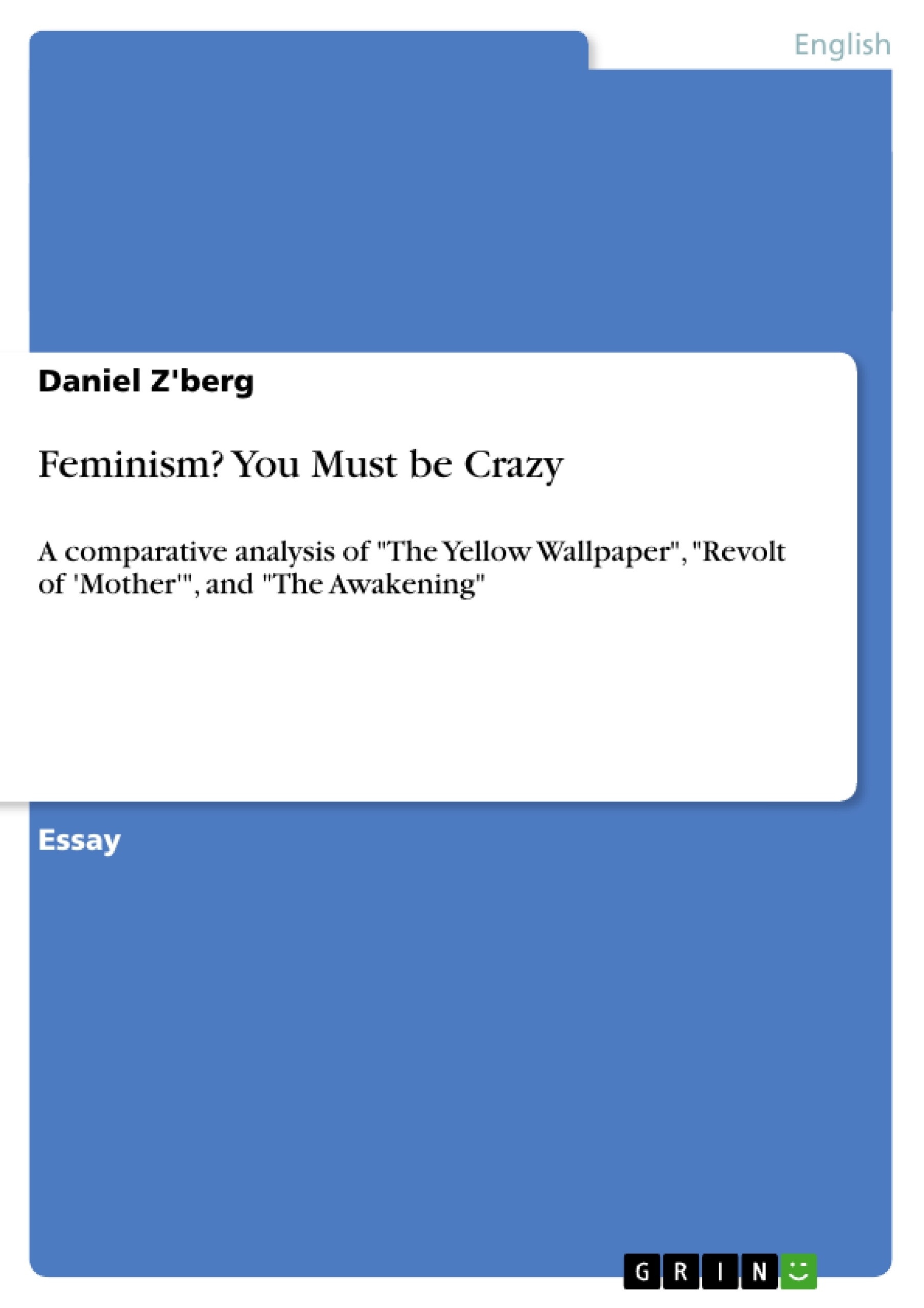A common theme of feminism is evident in “The Yellow Wallpaper”, “Revolt of ‘Mother’”, and The Awakening. The stories show the plight of women who did not conform to the conventional female roles of the late nineteenth century. Comparable conquests and consequences come about in the stories as rebellious characters demonstrate assorted but related needs in a society that generally painted women simply as mothers and homemakers. Each of the female protagonists was able to break the spell cast by a patriarchal social structure, but not without some sacrifice.
The stories each reveal some rebellious tones early on. In “The Revolt of ‘Mother’”, Sarah powerfully demands that her husband explain why the men are digging in the field (Freeman 629). In “The Yellow Wallpaper”, the narrator displays a slight agitation to show a glimpse of her rebellious spirit. In the first few paragraphs of the story, she criticizes John, to herself, for his lack of empathy and his abilities as a physician (Gilman 687). Chopin uses an omniscient point-of-view in The Awakening to sincerely label Edna as “not a mother-woman” (Chopin 546). In other words, Edna is described as being bad at what society believed every woman should be inherently good at. In fact, the most significant responsibilities for women in the late 1800s were considered “wifehood and motherhood” (“Women’s History”). These two elements represent the patriarchal society that fuel the individual conflicts experienced by each protagonist in the stories.
Table of Contents
- Feminism? You must be Crazy
- Rebellious Tones
- Traditional Views and Challenges
- Resolutions and Sacrifices
Objectives and Key Themes
This essay explores the theme of feminism in three late nineteenth-century American short stories: "The Yellow Wallpaper," "The Revolt of 'Mother'," and "The Awakening." The author analyzes how the female protagonists rebel against conventional gender roles and the consequences they face in a patriarchal society.
- Feminist themes in American literature
- Rebellion against traditional female roles
- Consequences of non-conformity
- Patriarchal societal structures and their impact on women
- Individuality and sacrifice
Chapter Summaries
- Feminism? You must be Crazy: This introductory chapter establishes the central argument that the three stories – "The Yellow Wallpaper," "The Revolt of 'Mother'," and "The Awakening" – explore feminist themes and the challenges women faced in a patriarchal society. It introduces the concept of women defying traditional roles and the consequences they face.
- Rebellious Tones: This section delves into the early signs of rebellion exhibited by the female protagonists in each story. It highlights Sarah's assertive questioning in "The Revolt of 'Mother'," the narrator's inner criticism in "The Yellow Wallpaper," and Edna's defiance of societal expectations as described in "The Awakening."
- Traditional Views and Challenges: This chapter examines the societal pressures faced by the protagonists. It emphasizes the prevailing views of women as wives and mothers and how these expectations create conflict for the characters. The author explores how societal norms lead to the protagonists being labeled as mentally ill for their defiance.
Keywords
Key terms and concepts explored in this essay include feminism, patriarchal society, traditional female roles, rebellion, non-conformity, consequences, mental illness, individualism, sacrifice, and the late nineteenth-century American literary landscape.
- Quote paper
- Daniel Z'berg (Author), 2010, Feminism? You Must be Crazy, Munich, GRIN Verlag, https://www.grin.com/document/210604




